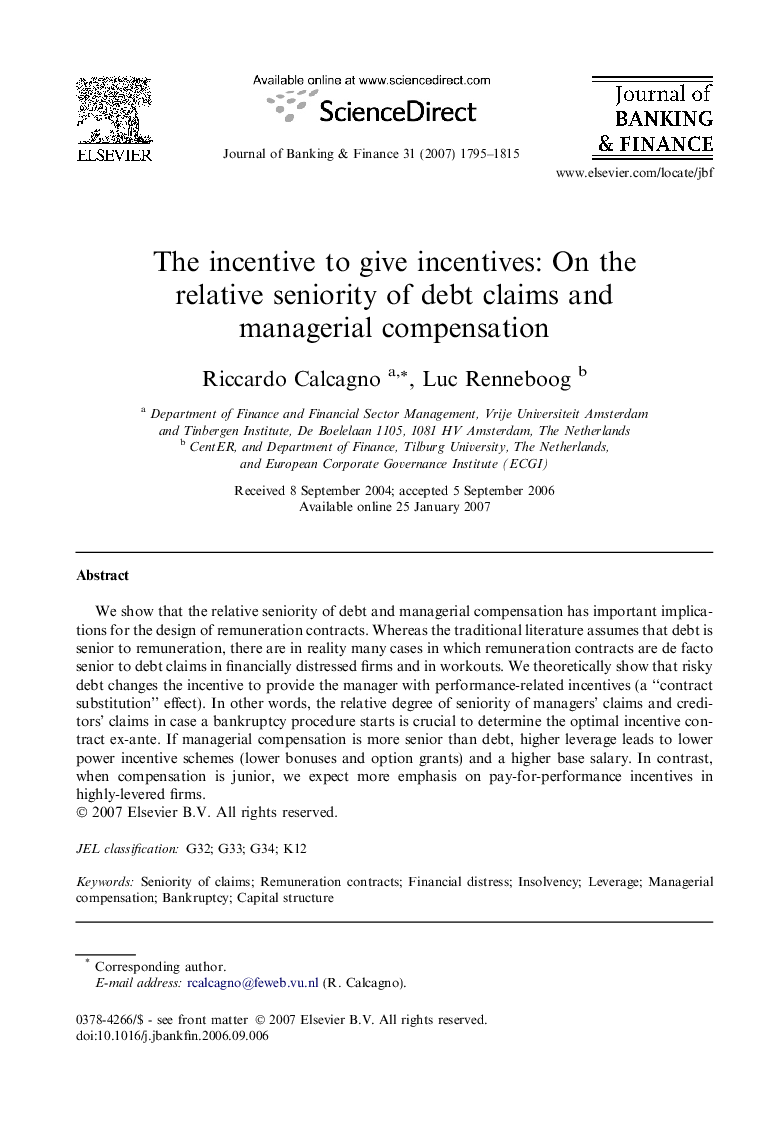| Article ID | Journal | Published Year | Pages | File Type |
|---|---|---|---|---|
| 5091298 | Journal of Banking & Finance | 2007 | 21 Pages |
We show that the relative seniority of debt and managerial compensation has important implications for the design of remuneration contracts. Whereas the traditional literature assumes that debt is senior to remuneration, there are in reality many cases in which remuneration contracts are de facto senior to debt claims in financially distressed firms and in workouts. We theoretically show that risky debt changes the incentive to provide the manager with performance-related incentives (a “contract substitution” effect). In other words, the relative degree of seniority of managers' claims and creditors' claims in case a bankruptcy procedure starts is crucial to determine the optimal incentive contract ex-ante. If managerial compensation is more senior than debt, higher leverage leads to lower power incentive schemes (lower bonuses and option grants) and a higher base salary. In contrast, when compensation is junior, we expect more emphasis on pay-for-performance incentives in highly-levered firms.
